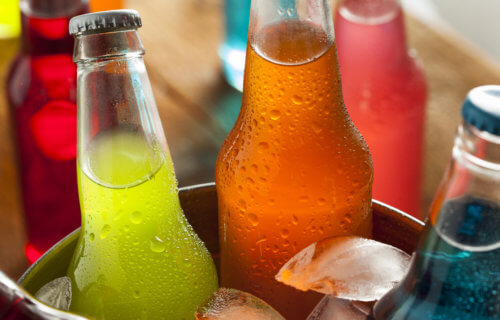MELBOURNE, Australia — Low-sugar alcoholic drinks are luring young women into a false belief they also contain less booze, a new study warns.
Researchers from the University of Melbourne say consumers are often drawn to the “health halo” around low-sugar products. They end up believing these drinks are healthier overall than regular alcoholic beverages. According to the findings, young women are also less likely to say they would exercise more and start dieting if they regularly consume low-sugar drinks.
The study was carried out in Australia, where one in five alcoholic drinks claim they do not contain high levels of sugar.
“Such claims have the potential to create a ‘health halo’, misleading consumers to perceive products displaying them as healthier than other options, which may increase consumption,” researchers write in a statement, according to SWNS.
They added that there is no data on caloric differences between low-sugar and regular alcoholic drinks in Australia. This would be hard to estimate reliably and there is no mandatory energy labelling in the country. Study authors now that any alcoholic drink which claims to be lower in sugar or calories is problematic, since any amount of booze can be harmful to a drinker’s health.
Beverage labels impact decisions about exercise and diet
For the study, 501 Australian women between 18 and 35 took part in an online survey. Half of the participants viewed images of products claiming to be low-sugar, and half viewed identical products with no such claims.
Participants did this using six images of ready-to-drink (RTD) spirit drinks with mixers if the participants consumed these within the past year, or cider drinks if they consumed those instead. If participants had consumed both, they were randomly allocated to one group or the other.
The groups ranked the drinks on a scale of one to seven for various measures including sugar levels, energy levels, overall health, and suitability for weight management and a healthy diet. While they were all told that all the products contained the same amount of alcohol, they ranked the drinks with low-sugar labels as healthier than those without.
The study did not find a difference in how much people felt socially accepted depending on their desire to drink these beverages. The team also did not find a difference in how likely they would be to consume the products and how many servings they would consume over the next two weeks.
Crucially, people who drank the low-sugar drinks were less likely to plan on compensating for the calories by doing exercise or dieting. Participants who viewed the no-claim drinks were more likely to state that they would adjust their diet and activity habits to account for calories consumed in “regular” alcoholic drinks.
“These claims have the potential to impact diet and activity behaviors following consumption,” the researchers tell SWNS. “Our findings demonstrate that low sugar claims on alcohol products can be misleading and support policy options to prohibit such claims on alcohol products and/or counter their effects, for example via health warning labels and/or mandatory energy labelling.”
Alcohol is rich in energy and contains double the amount of energy in pastries. Drinking too much can increase a person’s risk of putting on too much weight and ending up with illnesses such as cancer or heart disease.
The findings are published in the journal Alcohol and Alcoholism.
South West News Service writer Gwyn Wright contributed to this report.
